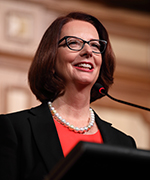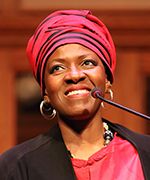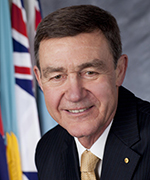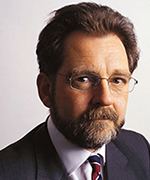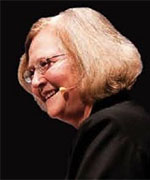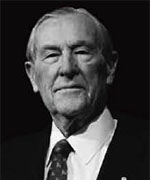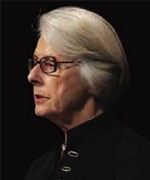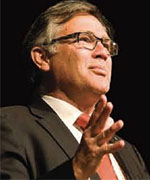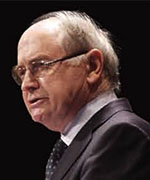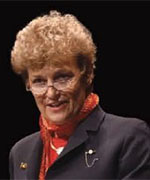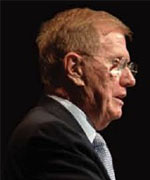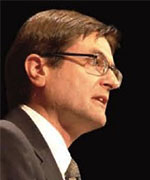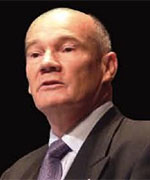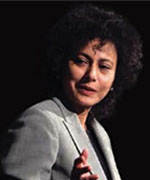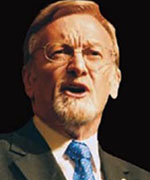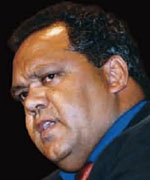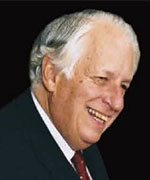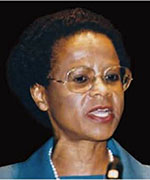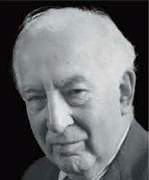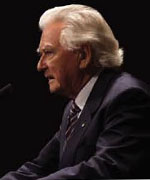Annual Hawke Lecture Series
Notable speakers and stimulating ideas
There are relatively few moments when we have the time to consider the larger issues of life, including the future of our nation and our world, and how we can shape it.
The Bob Hawke Prime Ministerial Centre offers the Annual Hawke Lecture in this spirit, as an opportunity to listen to the views of someone whose experience of human affairs is notable, and whose concerns about our world are truly worthy of consideration. Lectures cover a wide range of topics from the environment to human rights to science.
The Annual Hawke Lecture is a significant event on the public calendar of the University of South Australia.
Archive: 1998 - 2017
2017 - Learning from the Hawke Legacy in an Age of Anxiety
The Hon Julia Gillard AC
Former Prime Minister The Hon Julia Gillard AC will look back on the role The Hon Bob Hawke AC played in her own life and his enduring legacy to the nation as a leader that demonstrated both courage and a drive for consensus. Given her role as Chair of beyondblue, Ms Gillard will discuss how courage and consensus are still needed now as we search for new approaches to common, debilitating conditions like anxiety and depression.
ACCESS VIDEO HERE
2016 - Forgiving....The Only Way Forward
The Reverend Canon Mpho A Tutu van Furth
Be inspired and discover why forgiveness is not only a means to heal oneself, but also the world. The Reverend Canon Mpho A. Tutu is an ordained Episcopal Priest and the founding Director of the Desmond & Leah Tutu Legacy Foundation - an organisation founded by her father, The Most Reverend Desmond Tutu, and her mother Leah. Rev. Tutu recently co-authored The Book of Forgiving together with her father.
ACCESS PODCAST HERE
ACCESS VIDEO HERE
2015 - MH370 and MH17 Disaster and Crisis: An Examination of Australia's Response
Air Chief Marshal Sir Angus Houston AK, AFC (Ret'd)
A Malaysian aircraft disappeared on 8 March 2014 without a trace over the Indian Ocean with 239 people aboard. Four months later another Malaysian aircraft was shot down over a war zone in eastern Ukraine. The 298 people aboard were killed, including 38 Australians. Sir Angus was directly involved in both crises and examines the circumstances and Australia’s response to the disasters.
ACCESS PODCAST HERE
ACCESS VIDEO HERE
2014 - From the Great War to the Asian Century: what we can learn from 1914 about our place in the world
Professor Hugh White AO
For the 2014 Annual Hawke Lecture Professor Hugh White reflected on what we can learn from 1914 about our place in the world. Looking inwards, we think a lot about what the war taught us about ourselves. We spend less time looking outwards, asking what it can teach us about the world we live in, our place in that world, and the choices we face today in the Asian Century.
ACCESS PODCAST HERE
ACCESS VIDEO HERE
2013 - Living longer a journey into the bio-future
Dr Elizabeth Blackburn AC FRS FAA FRSN
In conversation with the science presenter Robyn Williams, Nobel Laureate Dr Elizabeth Blackburn shared the passion and insights that have driven her towards her celebrated scientific achievements. Dr Blackburn reflected on women in science and the role of science in policy-making.
ACCESS PODCAST HERE
ACCESS VIDEO HERE
2012 - Advance Australia where?
Forging our future in the Asian region
The Late Richard Woolcott AC
This lecture closely followed the release of the Australian Government’s aspirational White Paper, Australia in the Asian Century. These events were the backdrop to Richard Woolcott’sviews on why and we could advance Australia into the ‘Asian century’.
ACCESS PODCAST HERE
ACCESS VIDEO HERE
2011 - International criminal trials. A promise fulfilled?
The Hon. Dame Silvia Cartwright PCNZM DBE QSO DStJ
In this address, Dame Silvia explored the utility of international criminal trials against the backdrop of the Cambodian experience under the Khmer Rouge regime (1975–79). She described how the trial would ultimately contribute to the protection of universal human rights.
ACCESS PODCAST HERE
ACCESS VIDEO HERE
2010 - Re-thinking Australian politics: engaging the disenchanted
Professor Geoff Gallop AC
In his lecture Professor Gallop explored what we mean by disenchantment with Australian politics, how this differed from disengagement, and how we could identify those who constitute the disenchanted. He posed the question: if disenchantment matters, what is the way forward for Australian politics?
ACCESS PODCAST HERE
2009 - Climate change: the public interest and private interests in Australian policy
Professor Ross Garnaut AO
This lecture followed the publication of the Garnaut Climate Change Review (2008). Professor Garnaut acknowledged that climate change mitigation policy was challenging, and his lecture explored these challenges. He reviewed what had been achieved in climate change policy and what remained aspirational at that time.
ACCESS PODCAST HERE
2008 - The greatest injustice: why we have failed to improve the health of Aboriginal people
Professor Fiona Stanley AC
In this lecture, Fiona Stanley carefully constructed the picture of the state of affairs for Indigenous health. She noted that Australia had the benefit of numerous documents outlining how we can improve Aboriginal circumstances, but despite this we ignore the body of evidence, and so we are failing Aboriginal people.
ACCESS PODCAST HERE
2007 - Consensus and dissent in Australia
The Hon. Michael Kirby AC CMG
The Hon. Michael Kirby argued that a democratic society needs both consensus and dissent, and asked: when was it appropriate, in the law and in the community, to seek agreement or compromise? And when should we stand up and robustly disagree? When was dissent a proper response?
ACCESS PODCAST HERE
2006 - A new Australian consensus for the 21st century
Greg Combet AM
In this lecture, Greg Combet held that long-term economic, environmental, social justice and security issues were not being adequately addressed by the nation and government. He believed that investment in these areas would help to create a new Australian consensus for the twenty-first century.
ACCESS PODCAST HERE
2005 - A sustainable planet: a future for Australia
Greg Bourne
Greg Bourne demonstrated the dire state of the world’s environment but also stressed that we can choose – as the future is driven by humanity. He held that we can seize the opportunity to create a thriving economy, society and environment. His essential message was that we can, and must, create a sustainable Australia.
ACCESS PODCAST HERE
2004 - "Security for whom?" Redesigning security, reinforcing human rights
Dr Irene Khan
Irene Khan noted that insecurity in a post-9/11 world was bound up intimately with the failure to respect human rights, as well as concerted action to undermine them. She held that reinforcing human rights was also the way to reinforce security. Dr Khan outlined five specific areas where Australia could make a contribution.
Published Copies of this lecture are available from The Bob Hawke Prime Ministerial Centre.
2003 - Waging war and making peace
Professor the Hon. Gareth Evans AC QC
In his lecture, Gareth Evans described the world as a more frightening place than a decade earlier (1993). He explained his view and explored how the global community should be responding to these problems, and posited some implications for Australian foreign policy.
Published Copies of this lecture are available from The Bob Hawke Prime Ministerial Centre.
2002 - Indigenous Australia: the social and cultural predicament
Noel Pearson
Noel Pearson discussed the future of the Labor Party, saying his views were informed by the cultural, social and economic predicament confronting ‘the underclass’ of Indigenous Australia, with particular reference to his people in Cape York Peninsula. He proposed that the 'cultural left' had prevented social policy reform.
Published Copies of this lecture are available from The Bob Hawke Prime Ministerial Centre.
2001 - Medical science and human goals: a challenge for Australian research
Sir Gustav Nossal AC, CBE, FRS, FAA
Sir Gustav highlighted Australia’s recent discoveries in medical science and biotechnology, which were not only gaining international acclaim in the scientific community, but were also being used as tools to achieve human goals for social justice in the world’s most vulnerable countries.
Published Copies of this lecture are available from The Bob Hawke Prime Ministerial Centre.
2000 - Human rights and human development
Dr Mamphela Ramphele
Mamphela Ramphele put the view that Australia needed to re-evaluate its global role. She encouraged Australians to recognise their special responsibility to ensure that democratic values were strengthened and supported in the emerging democracies of the developing world, particularly in neighbouring countries.
Published Copies of this lecture are available from The Bob Hawke Prime Ministerial Centre.
1999 - An Australian republic: a guide for the perplexed
The Rt Hon. Sir Zelman Cowen AK GCMG GCVO QC DCL
Delivered in the lead-up to the 1999 Australian republic referendum, Sir Zelman Cowen offered this guide to understanding the Australian republican movement. He outlined the historical events that had stimulated the movement and described different republican models, including those proposed in the referendum.
Published Copies of this lecture are available from The Bob Hawke Prime Ministerial Centre.
1998 - A confident Australia
The Hon. Robert J L Hawke AC, GCL
In the inaugural Annual Hawke Lecture, the Late Mr Hawke marvelled at the fortitude and imagination of our forebears. However, the Late Mr Hawke also expressed a genuine concern about what was happening in Australia, regarding the national ideal of the fair go – seen to be fading in the emerging politics of polarisation and division.
Published Copies of this lecture are available from The Bob Hawke Prime Ministerial Centre.
While the views presented by speakers within The Bob Hawke Prime Ministerial Centre public program are their own and are not necessarily those of either the University of South Australia, or The Bob Hawke Prime Ministerial Centre, they are presented in the interest of open debate and discussion in the community and reflect our themes of: Strengthening our Democracy - Valuing our Diversity - Building our Future. The Hawke Centre reserves the right to change their program at any time without notice.



